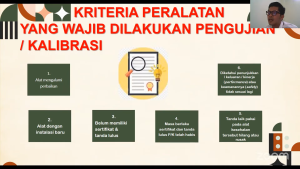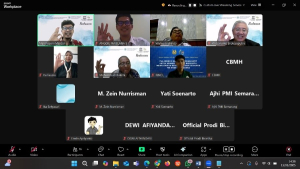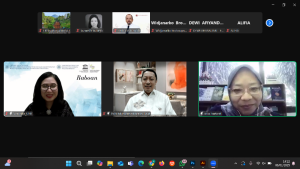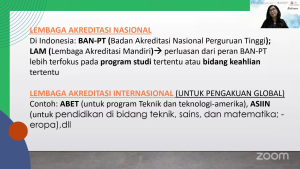Without Calibration, Medical Devices Can Become a Threat, Not a Solution

(A presentation on medical device calibration by Anggie Maulana Subkhan, SKM, M.Bio.Et.)
Yogyakarta, January 15, 2025 – Raboan Research and Perspective Sharing returned with an engaging topic titled “Ethical Issues in Medical Device Calibration Services”. This event was attended by healthcare professionals, practitioners, and students interested in bioethics and medical device calibration.
The webinar featured Anggie Maulana Subkhan, SKM, M.Bio.Et, as the keynote speaker. Anggie, a calibration technician at the Yogyakarta Health Office and an alumnus of the Master of Bioethics program, brought valuable insights into the ethical challenges faced in the medical sector. He emphasized that medical device calibration is not just crucial for accreditation but also essential for patient safety, ensuring accurate measurement results.
Anggie also discussed ethical dilemmas in the calibration process, including the lack of trained personnel, unaccredited calibration institutions, and budget constraints often faced by healthcare facilities. With existing regulations, such as the Ministry of Health Regulation No. 54 of 2015 on medical device testing and calibration, it is vital for all stakeholders to understand the critical role of calibration in preventing serious health risks caused by device errors.
This discussion strongly aligns with the Sustainable Development Goals (SDGs), particularly SDG 3: Good Health and Well-being. Accurate and ethical medical device calibration ensures precise diagnoses, reduces medical errors, and enhances patient safety. Additionally, the webinar supports SDG 16: Peace, Justice, and Strong Institutions, by highlighting the importance of fair regulations, institutional capacity building, and ethical accountability in healthcare services. The collaboration among institutions discussed during this session reflects collective efforts to sustain a global health system.
The Raboan session provided profound insights into the importance of ethics in medical device calibration and its contribution to the quality of healthcare services. The event also emphasized the need for collaboration between healthcare institutions, calibration agencies, and the community to ensure calibration processes are conducted effectively and in compliance with standards.

(Group photo session with Raboan participants)
For more information, visit our Instagram pages @cbmh_ugm and @bioetika.ugm or contact us via email at cbmhfkugm@mail.ugm.ac.id.
Reporter : Alvira Rahmasari, S.H.G.
Editor : Rafi Khairuna Wibisono, S.Kom.


